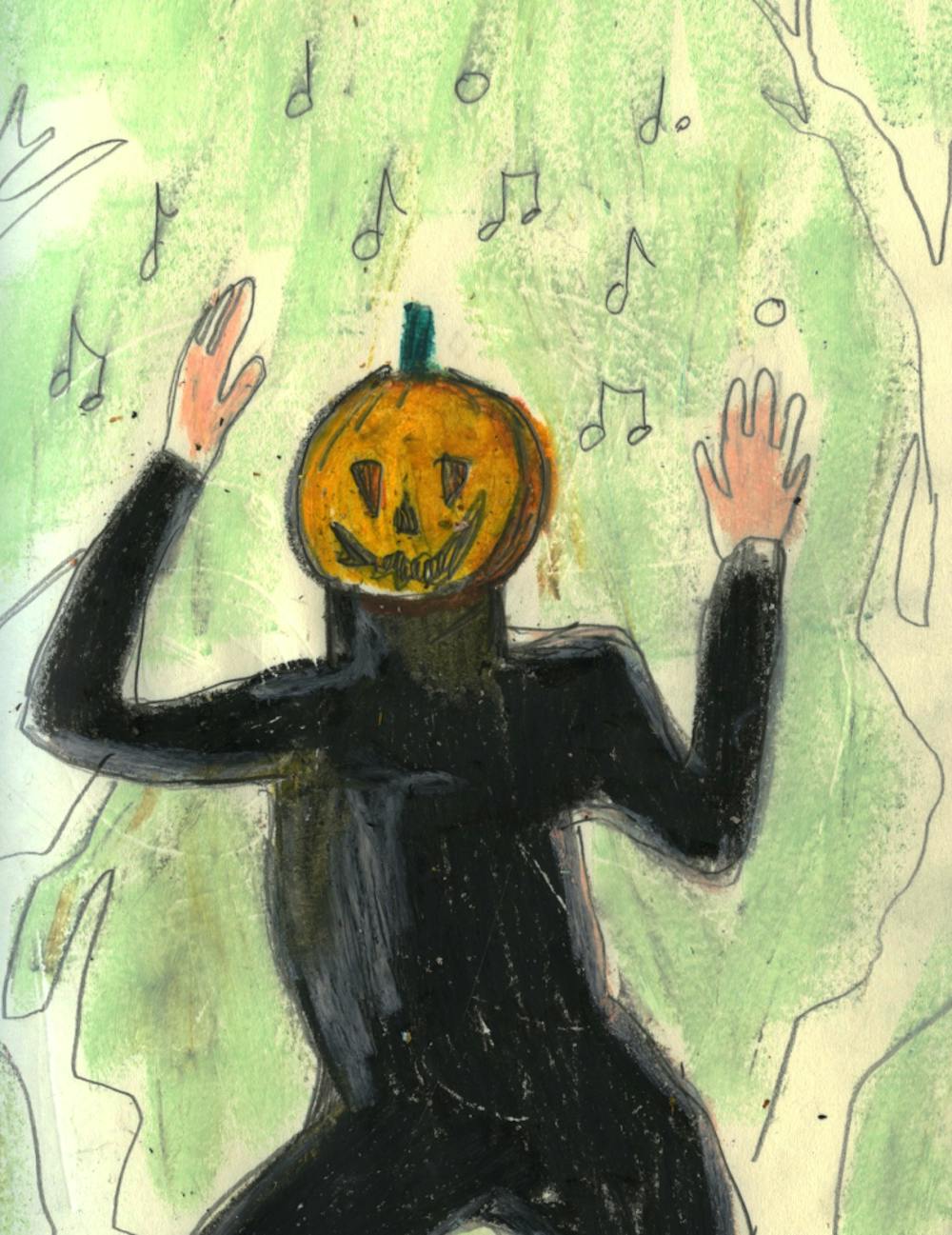Shivers went down my spine as the sound of chopping scissors permeated the quiet theater; my friends and I scrunching our faces in disgust and waited with bated breath for the frightening music to end. I listened to the faint melodies with anticipation, nearly jumping out of my seat when the music swelled and the silence of the protagonist spoke volumes. The Witch, released in 2016, was an excellent film, filled with hidden meaning and horror that followed you long after you stopped watching. It was the first horror movie that I remember with a truly noticeable soundtrack. Although I didn’t remember the exact tune of the music played, I remember the feeling that it created in the pit of my stomach, one of fear and hesitation and excitement all at once.
I thought back to this moment several months later, during a desperate moment of online Halloween costume shopping and scrolling through countless witch outfits. I didn’t remember exactly how the soundtrack for the film sounded, so to satisfy my curiosity I scoured the internet and managed to find a snippet of it on SoundCloud. I pressed play, listened for a few seconds, and then turned it off as quickly as humanly possible.
I was expecting to hear something slightly off–putting, but the sounds that my laptop emitted made me immediately scrunch my shoulders and grimace. Although I know a soundtrack has the best effect in the context of the film, I didn’t expect to have the same emotions evoked when I listened to it on its own. I think that was the first time I realized how powerful music is for an audience, especially for horror movie viewers.
Horror movies are a staple for autumn, just as ubiquitous as the changing of the leaves or the sudden desire you may have to inhale a hot latte. It’s the perfect genre to choose when you’re trying to make a move on that guy you’ve been frustratingly stagnant with (A jump scare? Perfect time to grab his arm) or when you’re trying to get in the Halloween mood (that levitation scene in The Exorcist is such a mood). But what actually makes a horror movie scary? What builds the tension, suspense, and fear, so that when the jump scare comes you eject out of your seat in utter terror? What creates the horror movie mood?
The answer is the soundtrack.
However, a lot of people dismiss horror films as cheap productions with little to no cinematic value. The majority of viewers take the many components involved in making a good horror film completely for granted, most of all the soundtrack of the movie. Most people don't even notice the soundtrack. And if you haven’t, that’s perfectly okay; that means music producers are doing their jobs well! But in order to truly develop an appreciation for the genre, it’s important to understand just how integral the soundtrack is. Every scene is meant to evoke a different feeling in the viewer, and that can prove to be impossible without a killer soundtrack.
So, although I wouldn’t recommend adding the soundtracks of scary films to your playlists on Spotify, I encourage you to take a second and appreciate the immense effect that a masterful soundtrack can make.
If you are looking for a horror movie soundtrack to try out, I would highly recommend Suspiria, the arguable poster child for horror movie soundtracks and one of the most iconic films of all time (with a sequel starring Dakota Johnson set to release soon!). Dario Argento, the director behind the film, employed musical genius Claudio Simonetti to create his unsettling soundtrack. Argento said he “wanted the music to scare,” something that wasn’t the norm in horror movies at the time. Horror movies were known for suspenseful tracks, of course, but never a soundtrack that was in itself meant to be a vehicle for fear.
They achieved just the vibe they wanted with their soundtrack, which was described as "one of the most striking assaults on the senses ever to be committed to celluloid.” While most horror movie soundtracks take the invisible approach, Suspiria’s background music is meant to be heard and appreciated by the audience. It’s so striking that even the most unobservant viewer can’t help but listen to and become immersed in the unusual sounds and melodies present throughout the film. Simonetti brought in the Italian band Goblin to produce these innovative sounds, and the band used everything from a Greek bouzouki to an Indian tabla.
Suspiria presents a perfect example of how soundtracks can be abrasive and frightening, proving invaluable in generating a movie’s effect. The new version of the film is set to have its soundtrack produced by Thom Yorke, the Radiohead frontman. Yorke released an album containing songs from the soundtrack following its debut in the Venice film festival!
It will be interesting to see how this soundtrack compares to the original and how it will mesh into the rest of the film.







